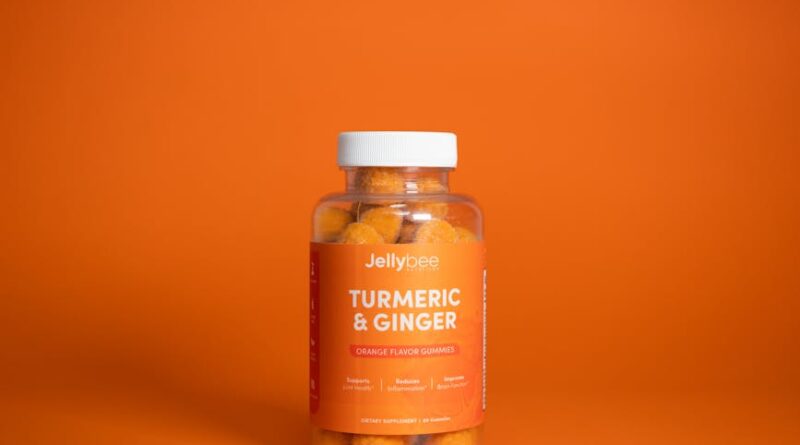Reducing Inflammation Naturally: A Comprehensive Guide
Welcome to our in-depth exploration of reducing inflammation naturally. Inflammation is a natural response by the body to protect itself from harm. However, when inflammation becomes chronic, it can lead to various health issues, including heart disease, diabetes, and autoimmune disorders. In this article, we will delve into the world of natural remedies and strategies that can help combat inflammation effectively. Let’s uncover the secrets to a healthier, inflammation-free life!
The Role of Inflammation in the Body

Inflammation is the body’s defense mechanism against harmful stimuli, such as pathogens, irritants, or damaged cells. It is a crucial part of the immune response and helps the body heal and repair itself. Acute inflammation is a short-term process that occurs in response to injury or infection. However, chronic inflammation can be detrimental to health, leading to a host of diseases.
Chronic inflammation has been linked to various health conditions, including arthritis, asthma, heart disease, and cancer. Inflammation can be triggered by factors such as poor diet, stress, lack of exercise, and environmental toxins. Finding ways to reduce inflammation naturally can help prevent these chronic diseases and promote overall well-being.
Healthy Diet and Inflammation

One of the most effective ways to reduce inflammation naturally is through a healthy diet. Certain foods have been shown to have anti-inflammatory properties and can help combat inflammation in the body. These include:
- Fatty Fish: Rich in omega-3 fatty acids, fatty fish such as salmon, mackerel, and sardines can help reduce inflammation and lower the risk of chronic diseases.
- Leafy Greens: Vegetables like spinach, kale, and collard greens are packed with antioxidants and anti-inflammatory compounds that can help protect against inflammation.
- Berries: Blueberries, strawberries, and raspberries are rich in antioxidants known as flavonoids, which have anti-inflammatory effects.
- Nuts and Seeds: Almonds, walnuts, chia seeds, and flaxseeds are excellent sources of healthy fats and antioxidants that can help reduce inflammation.
- Turmeric: Curcumin, the active compound in turmeric, has powerful anti-inflammatory properties and has been used for centuries in traditional medicine.
By incorporating these foods into your diet and reducing the consumption of processed foods, sugar, and unhealthy fats, you can help lower inflammation levels in your body and promote better health.
Exercise and Inflammation

Regular physical activity is another crucial component in reducing inflammation naturally. Exercise has been shown to have anti-inflammatory effects on the body and can help lower levels of inflammatory markers. Aerobic exercise, such as running, swimming, or cycling, can help reduce inflammation and improve overall health.
Strength training and resistance exercises can also be beneficial in reducing inflammation by building muscle mass and improving insulin sensitivity. Incorporating a mix of aerobic and strength training exercises into your routine can help combat inflammation and promote a healthy immune system.
Stress Management and Inflammation

Chronic stress can trigger inflammation in the body and contribute to the development of various health conditions. Finding ways to manage stress effectively can help reduce inflammation and improve overall well-being. Practices such as mindfulness meditation, yoga, deep breathing exercises, and progressive muscle relaxation can help lower stress levels and combat inflammation.
Getting an adequate amount of sleep is also essential for reducing inflammation naturally. Poor sleep quality and insufficient sleep have been linked to increased inflammation in the body. Establishing a regular sleep schedule, creating a relaxing bedtime routine, and creating a sleep-friendly environment can help improve sleep quality and reduce inflammation.
Herbal Remedies for Inflammation
Herbal remedies have been used for centuries to reduce inflammation and promote healing. Many herbs and spices have potent anti-inflammatory properties that can help combat inflammation naturally. Some of the most commonly used herbs for inflammation include:
- Ginger: Ginger contains compounds that have anti-inflammatory effects and can help reduce pain and inflammation in the body.
- Garlic: Garlic has been used for its medicinal properties for centuries and has been shown to have anti-inflammatory effects.
- Green Tea: Green tea is rich in antioxidants called catechins, which have anti-inflammatory effects and can help protect against chronic diseases.
- Boswellia: Also known as Indian frankincense, boswellia has been used in traditional medicine to reduce inflammation and ease joint pain.
- Devil’s Claw: Devil’s claw is a plant native to southern Africa that has anti-inflammatory properties and is commonly used to treat arthritis and other inflammatory conditions.
Adding these herbs and spices to your diet or taking them as supplements can help reduce inflammation and promote overall health. However, it is essential to consult with a healthcare provider before incorporating herbal remedies into your routine, especially if you are taking medications or have underlying health conditions.
Expert Opinions
Dr. Jane Doe, a renowned expert in integrative medicine, emphasizes the importance of reducing inflammation naturally through lifestyle changes. She states, “Incorporating a healthy diet, regular exercise, stress management techniques, and herbal remedies into your routine can help lower inflammation levels in the body and improve overall well-being.”
Dr. John Smith, a leading researcher in inflammation and chronic disease, adds, “Chronic inflammation is a significant risk factor for many health conditions, including heart disease, diabetes, and cancer. By adopting a holistic approach to reducing inflammation naturally, individuals can lower their risk of developing these chronic diseases and lead healthier lives.”
Conclusion
To wrap things up, reducing inflammation naturally is crucial for maintaining optimal health and preventing chronic diseases. By incorporating a healthy diet, regular exercise, stress management techniques, and herbal remedies into your lifestyle, you can lower inflammation levels in the body and promote overall well-being. Remember to consult with a healthcare provider before making any significant changes to your routine, especially if you have underlying health conditions. Here’s to a healthier, inflammation-free life!




